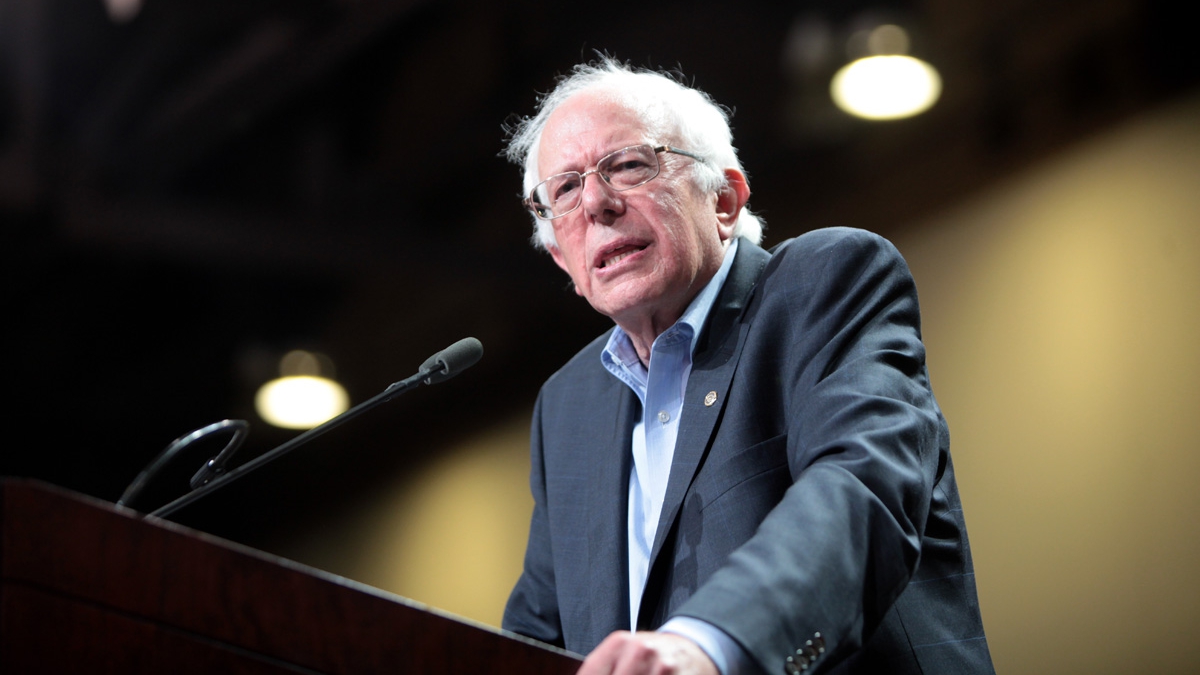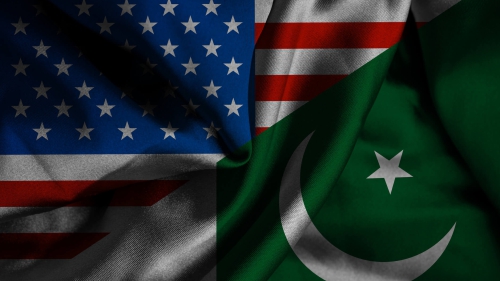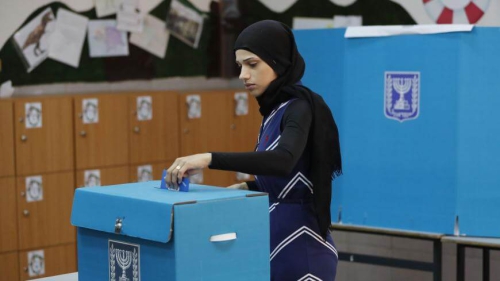War, Peace and Bernie Sanders

It’s the day after the big vote and I’m doing my best to dig Tulsi Gabbard’s endorsement of Bernie Sanders out from beneath the pile of Super Tuesday numbers and media declarations of winners and losers.
As a Boston Globe headline put it: “Clinton and Trump are now the presumptive nominees. Get used to it.”
But something besides winning and losing still matters, more than ever, in the 2016 presidential race. War and peace and a fundamental questioning of who we are as a nation are actually on the line in this race, or could be — for the first time since 1972, when George McGovern was the Democratic presidential nominee.
Embrace what matters deeply and there’s no such thing as losing.
Gabbard, an Iraq war vet, congresswoman from Hawaii and “rising star” in the Democratic establishment, stepped down as vice-chair of the Democratic National Committee in order to endorse Sanders — because he’s the only candidate who is not financially and psychologically tied to the military-industrial complex.
“As a veteran of two Middle East deployments, I know firsthand the cost of war,” she said, cracking the mainstream silence on U.S. militarism. “As a vice chair of the DNC, I am required to stay neutral in democratic primaries, but I cannot remain neutral any longer. The stakes are just too high.”
Because of Gabbard — only because of Gabbard — the multi-trillion-dollar monstrosity of U.S. militarism is getting a little mainstream media attention amid the reality-TV histrionics of this year’s presidential race, the Donald Trump phenomenon and the spectacle of Republican insult-flinging.
As the results of Super Tuesday started coming in on Tuesday night, Gabbard was given a few minutes to talk on MSNBC. While Rachel Maddow wanted to discuss the risk her Sanders endorsement might have on her career, Gabbard insisted on addressing the slightly larger matter of our unchecked, resource-hemorrhaging military adventurism across the globe.
“War is a very real thing,” she said. “If the Syrian war continues, we won’t have the resources to fund important social programs. This isn’t a question of the past — it’s a question of today. Regime-change wars do nothing to strengthen our national security, but they do strengthen our enemies.”
Fine. We’ll return after these messages . . .
A short while later, the MSNBC analysts’ attention snapped back to the Trump phenomenon. Someone opined: “The vast majority of Trump supporters are enamored of winning” far more than they care about the goofball issues Trump is supposedly running on, like the wall across the Mexican border and the ban on Muslims entering the country.
Maybe it’s true and maybe it’s not, but I sense the mainstream media is a lot more comfortable with an issue-free presidential race, which is what the powers that be want, of course. The presidential election is supposed to be a distraction, not some kind of public accountability process.
The Sanders phenomenon, while as shocking and unexpected as the success of the Trump campaign, is far too substantive to garner a similar amount of media attention, let alone serious consideration of the issues he’s bringing up. Yet remarkably, his call for social change — for the transformation of a “rigged economy” — has not receded to the margins, either.
So what happens next? Tulsi Gabbard’s endorsement is the key. As Dave Lindorff recently wrote:
“Sanders, who has been avoiding talking about the country’s military budget and its imperialist foreign policy, should use the opportunity of Gabbard’s defection from the DNC to announce that if elected he would immediately slash military spending by 25 percent, that he would begin pulling U.S. forces back from most of the 800 or more bases they occupy around the world, and that he would end a decades-long foreign policy of overthrowing elected leaders around the globe.”
The shock waves generated by such a stance, from a candidate who already has 386 delegates, would be enormous. Conventional wisdom cries no, no, that’s too much. No matter how much harm our wars have caused in the last decade, no matter how absurd a slice that war preparation — including nuclear weapons development — gouges from the national budget, the U.S. military, the planet’s biggest polluter and most prolific terrorist, remains untouchable. The public has no say in these matters. The president has no say in these matters.
This delusion goes back to the Vietnam War and McGovern’s loss to Richard Nixon. Since then, the Democrats have attempted to purge themselves of antiwar — or what perhaps should be called trans-military — thinking. In doing so, they’ve tied themselves to their own, and the country’s, inevitable collapse.
The other option is transformation. This is the year it could begin.
*****
Robert Koehler is an award-winning, Chicago-based journalist and nationally syndicated writer. His book, Courage Grows Strong at the Wound (Xenos Press), is still available. Contact him at [email protected] or visit his website at commonwonders.com.
© 2016 TRIBUNE CONTENT AGENCY, INC.

















